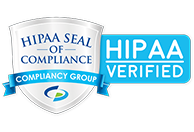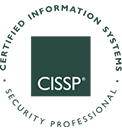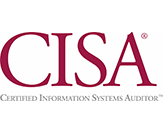The Securities and Exchange Commission (SEC) has made a resounding declaration of its intent to enforce stringent cybersecurity standards. As of December 18, 2023, it’s important for both public companies and private companies with the goal of being public to gear up for these new regulations.
The Significance of Compliance
These rules aren’t merely a set of checkboxes; they set a universal standard for companies’ management of data and operations. Stakeholders—be they customers, partners, or investors—are increasingly seeking assurance of this competence through third-party assessments aligned with recognized industry security frameworks.
Cybersecurity breaches can inflict severe damage, not just financially but also to a company’s reputation. Compliance measures, such as timely reporting and robust risk management strategies mandated by the SEC, serve as proactive shields against potential breaches. They help in early detection, containment, and mitigation of cyber threats, reducing the impact of any security incidents.
However, the guidelines don’t come with a roadmap for implementation. This leaves companies facing the challenge of choosing an appropriate framework that aligns with their scale and needs. While larger frameworks exist, they might not suit emerging companies. But the good news is, smaller companies need not overburden themselves; reasonable alternatives are available.
Choosing the Right Framework
Navigating the landscape of cybersecurity frameworks (such as CIS, NIST, ISO, PCI, COBIT …) can be daunting, especially for smaller companies aiming to align with the SEC’s guidelines. Many existing frameworks, while comprehensive, might overwhelm emerging businesses with their complexity and scale. However, selecting an appropriate framework is crucial as it forms the backbone of your cybersecurity strategy.
Factors to Consider:
- Scalability: One of the primary challenges for smaller companies is scalability. The framework must be adaptable, allowing for the gradual integration of more sophisticated controls as the company grows.
- Resource Allocation: Consider the resources required for implementation. Smaller companies often lack dedicated cybersecurity teams or substantial budgets. Opting for a framework that maximizes the use of available resources while ensuring effective security measures is paramount. Exploring collaboration with a partner such as KalioTek ensures a comprehensive navigation through guidelines and requirements, leaving no crucial elements overlooked.
- Compliance Alignment: While the SEC guidelines don’t specify a particular framework, they emphasize the importance of aligning with recognized industry standards. The CIS Controls, while distinct, align with prevalent standards like NIST, thereby ensuring compliance without unnecessary complexity.
- Practicality and Ease of Implementation: The chosen framework should not only address cybersecurity needs but also be practical and feasible for implementation within the company’s operations. The CIS Controls’ structured approach aids in gradual implementation, minimizing disruption to daily operations.
Streamline Cybersecurity Compliance
By prioritizing these considerations and selecting a framework that strikes a balance between comprehensiveness and practicality, smaller companies can effectively fortify their cybersecurity posture without being bogged down by excessive complexity. Consider exploring collaboration with a partner such as KalioTek, to ensure a comprehensive navigation through guidelines and requirements. Working closely with a partner who understands the new guidelines can help through leaving no crucial elements overlooked during implementation.
Conclusion: Compliance with the new SEC cybersecurity rules isn’t just a regulatory necessity; it’s a strategic imperative. It’s a proactive approach towards safeguarding not only the company’s data but also its reputation, market position, and long-term viability in an ever-evolving digital landscape. Are you prepared to navigate these new SEC rules? Taking the appropriate actions not only demonstrates compliance but also signals a commitment from your company to perform best practices in preventing breaches. At KalioTek, we specialize in helping companies implement these rules effectively, ensuring compliance, security, and peace of mind. Are you ready to stay ahead of the game?





